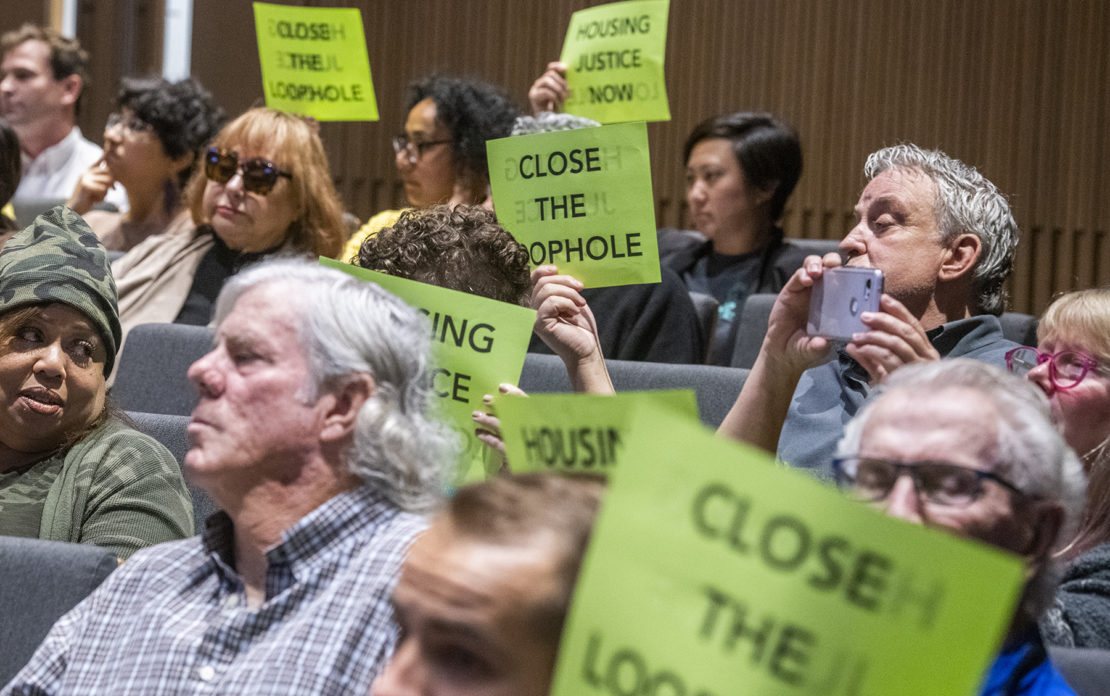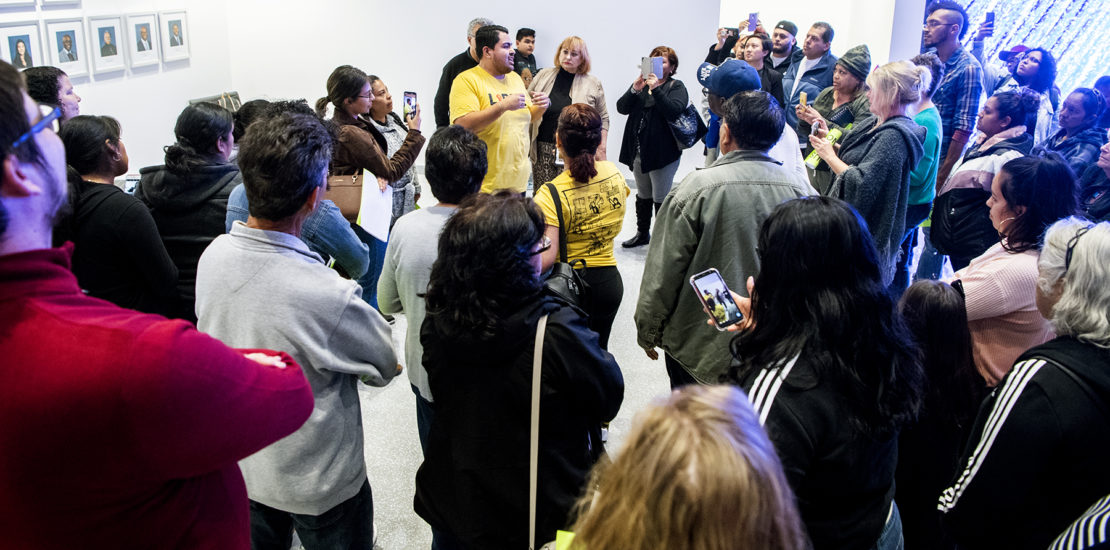The Long Beach City Council on Tuesday night gave new meaning to California’s Tenant Protection Act, toughening restrictions on landlords and voiding—for now—eviction notices for some renters.
Councilmembers unanimously passed an emergency ordinance to fix what they considered a flaw in the state’s new housing law, which went into effect in January and allowed tenant evictions from units that landlords said were going to be demolished or substantially remodeled.
The new state law requires landlords to obtain government building permits to prove the renovations are for more than cosmetic repairs and would require a tenant to vacate the building for at least 30 days. But the law does not say when during the eviction process those permits must be pulled.
Tenant-rights activists and renters facing evictions have argued that this ambiguity lets landlords evict renters without first proving that the renovations meet the thresholds set by the state law.
The City Council, faced with mounting pressure from renters and tenant activists, stepped in to act, apparently becoming the first municipal body in California to strengthen and clarify the new state law.

By a vote of 8-0, the council required that property owners must obtain all necessary building permits before issuing eviction notices to tenants whose units are purportedly being demolished or substantially remodeled.
What’s more, the council mandated that all eviction notices issued on or after Jan. 1 are now null and void. They must be reissued under the strengthened standards contained in the City Council’s emergency ordinance.
Those eviction notices must include a copy of all issued permits, including “reasonably detailed information” on the scope of the work and why it can’t be done with the tenant in place.
Mike Murchison, a lobbyist representing the Small Property Owners Alliance and Apartment Association of California Southern Cities, said that provision, among others, required a subjective interpretation. “Who decides what is reasonable work?” Murchison asked the council.
In response, 2nd District Councilwoman Jeannine Pearce sought clarification from the Deputy City Attorney Robert Anthony, who said such determinations would fall to the courts during challenges by tenants or landlords.
Murchison also asked the council whether a new online system could be put in place to help property owners seek extensions of permits and avoid having to personally appear at City Hall. Third District Councilwoman Suzie Price directed city staff to explore a possible online option and report back to the council.
Murchison was one of only two speakers at Tuesday’s meeting who spoke in opposition to the ordinance—vastly outnumbered by the renters and advocates who’ve become a steady presence and voice there.

Norbeto Lopez, project director with Long Beach Residents Empowered (LiBRE), has been a leading advocate for the renters. On Tuesday, he praised Long Beach for being the first city in California to confront the flaws in the Tenant Protection Act.
Working to not only connect renters to legal help but mobilize them into calling their representatives and attend council meetings, Lopez described the process as a “personal fight” for a lot of the families facing eviction.
Lopez said his organization will continue to monitor the implementation of the law and “take this fight further.”
“This is just a small band-aid to the solution,” Lopez said, “slowly but surely we’ll get there.”
Renters with specific questions about their situations under the new local ordinance can reach out to Housing Long Beach, LiBRE or Legal Aid Foundation of Los Angeles.

